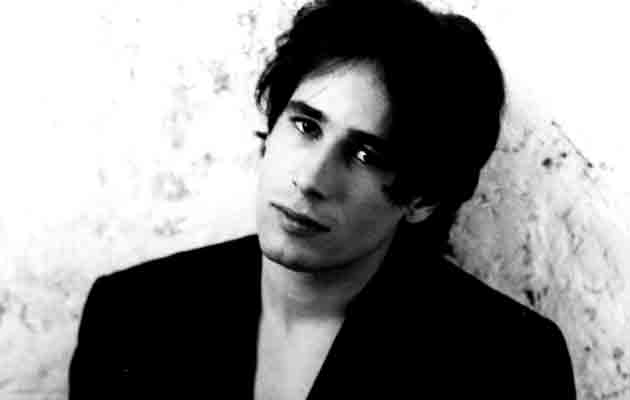In 1993, Jeff Buckley released his first EP: four songs, played live and alone, that introduced an extraordinary new talent to the musical world. Soon, he would create a debut album, Grace, that suggested he could do anything. Buckley, however, wasn’t so sure: “Jeff,” says his best friend, “was incredibly insecure about everything.” From tribute shows for his father, through the clubs, record labels and studios of New York and London, to the salons of his heroes, Jimmy Page and the Cocteau Twins, Uncut charts the tempestuous first moves of a lost legend. Eternal life guaranteed… Story: David Cavanagh. Originally published in Uncut’s June 2013 issue (Take 193).
____________________________
Jeff Buckley’s Grace tour lasted 21 months, visited Europe four times, racked up almost 150 North American dates and finally ended on March 1, 1996 in Sydney. The venue was a picturesque spot for the last goodbye: a club in a seaside hotel overlooking Coogee Beach. Among those there was Belinda Barrett, a 26-year-old producer for a Sydney film company, who’d become a Buckley fan the year before.
“Jeff’s two tours of Australia were a life-defining time for me and many others,” Barrett says today. “Jeff was someone you wanted to become a devotee of, and I did. He had incredibly loyal followers who really connected with his essence and spirit.” She remembers looking around at gigs and seeing people gaping in astonishment at the stage. Two years on the road had honed Buckley’s setlist into a hypnotic, invocatory, near-holy performance. “There were moments of coalescence in Australia,” recalls his drummer Matt Johnson, “when new worlds in music felt like they were being glimpsed. Moments I’ll remember until my dying breath.”
____________________________
Buckley was in good humour at the Coogee Bay Hotel’s aftershow party. Belinda Barrett asked him for his autograph. “Steely balance,” he wrote, adding: “Patti Smith”. But behind the smiles, the long tour had taken its toll. Johnson, suffering from exhaustion and depression, was leaving the group; he’d complained bitterly about the ravages of the “rock machine”. Under contract to Columbia, a Sony label, Buckley had committed to one of the most gruelling itineraries of the MTV-dominated ’90s. The promotional conveyor belt stretched from Paris to Perth, and Buckley had had to learn when to acquiesce and when to resist. It may be one explanation why “steely balance” – a phrase more befitting a wine list – popped into his head as he was approached for an autograph.
“We always said to him, ‘If it gets overwhelming, let’s take a breath,’” says Paul Rappaport, Sony’s former vice-president of artist development. “But you have to understand, people at the company were constantly fighting over him. ‘He’s got to go to France next.’ ‘No, he’s got to go to Australia!’” The conveyor belt paused; a Sydney hiatus in a New York story that had begun five years earlier.
It was a tale straight out of Dick Whittington. Buckley’s first visit to New York, in 1990, had ended with the 23-year-old Southern Californian fleeing Manhattan in despair after being accused of shoplifting. But in the spring of ’91, the bells coaxed him back. A phone call from Brooklyn invited him to sing at a tribute concert for his father, a man he’d hardly known. This time his arrival in the city would have an impact. Soon everyone from Marianne Faithfull to Allen Ginsberg would hear about him.
Held in a Brooklyn Episcopal church, “Greetings From Tim Buckley” was Jeff’s equivalent of a debutante’s coming-out party. He sang four of his father’s songs in the familiar Buckley vocal tone and range, dumbfounding anyone who’d presumed Tim’s multi-octave voice to be unique. The key moment came in “I Never Asked To Be Your Mountain” when the lighting designer projected Jeff’s head onto a stained glass wall at the rear of the church. It was, says the show’s producer Hal Willner, something akin to a visitation from Jesus. After that, there seemed little to keep Jeff in Los Angeles.
“He became a sponge of New York culture,” says Willner, who took him under his wing. “He jumped into the arty circle initially. I took him to see the Mingus Big Band at the Vanguard, and another night he went to see Sun Ra.” Buckley based himself in the Lower East Side, where he found “a village of freaks like himself” (in the words of actor-musician Michael Tighe, who would later join his band) and lived a monastic existence, burning incense and contemplating a small Bodhisattva on his windowsill. “People who were attracted to New York were not of the norm,” Willner adds. “They came here because of what they could do, which they couldn’t do anywhere else.”



